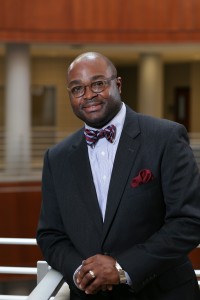
Dr. Lawrence T. Potter Jr., dean of the College of Liberal Arts, has been working to move the college into a 21st-century mindset — that is, strengthening its relevance in the face of resource challenges — since his appointment more than a year ago.
As part of that process, he has implemented the College’s New Strategic Directions, 2013-2018: Elevating Excellence.
“We need to begin to think differently about our traditional ways of prioritizing, allocating resources, and assessing our effectiveness,” said Potter. “We need a clear sense of the qualities and characteristics that will help us achieve our mission, a mission that is more critical in a rapidly changing, globalized world.”
New mission statement
To better reflect such an effort, Potter led the charge to revise the College of Liberal Arts’ mission statement. The new mission statement reads:
The College of Liberal Arts (CLA) at Jackson State University promotes and supports significant research, innovative scholarship, and creative expression in the arts, humanities, social and behavioral sciences. By offering a rich array of undergraduate and select graduate programs, the CLA provides a diverse and engaged student body with an outstanding education founded on nurturing relationships between students and distinguished faculty. Our academic disciplines, programs, interdisciplinary centers and institutes strive to cultivate skills in research and analysis, written and verbal communications, critical thinking, and visual literacy, as well as encourage a commitment to service to the city of Jackson and the global community.
Immediate strategic goals
The new strategic directions encompass six broad goals for academic departments to begin working toward immediately. These goals are:
- Recruit, retain and graduate a more diverse student population who matriculate to graduation in a timely manner; and recruit, retain, and promote a distinguished faculty and staff;
- Use technology more effectively to enhance teaching, scholarship, artistic endeavors and administrative responsibilities;
- Adopt new approaches to creating, sustaining, and assessing interdisciplinary programs; invest in developing and emerging interdisciplinary areas (e.g. Comparative Ethnic Studies, Women and Gender Studies, African Diaspora Studies, Global/International Studies);
- Enhance CLA’s integration of the arts, humanities, social and behavior sciences in the community and associated efforts to partner with the city and region in public outreach;
- Expand and improve undergraduate and graduate education programs and increase online courses and degree offerings;
- Capitalize on the research and teaching strengths of the arts, humanities, social and behavioral sciences to develop new sources of revenue and realize CLA’s long-term funding potential.
New Leadership
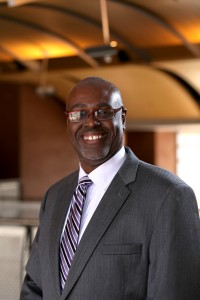
Implementation of new strategies and goals, Potter said, also meant realigning administrative functions within the College. To that end, he made two key appointments.
Dr. Marino Bruce, executive director of faculty development, research and creative expression
In August, Dr. Marino Bruce, professor of criminal justice and sociology, was named executive director of faculty development, research and creative expression.
He is tasked with three functions: (1) establishing professional development workshops for faculty on researching and developing competitive grant proposals, assessing teaching and learning practices, and writing for publication; (2) launching the Graduate Student-Faculty Colloquia; and (3) assembling a group of CLA faculty to serve as Idea Generation and Development Consultants to review manuscripts and grant proposals generated from CLA faculty and staff.
Background
Bruce has published extensively as lead author or co-author of more than 25 articles in peer-reviewed journals; he also has been lead author or co-author of two dozen journal articles, book reviews, published abstracts, and white papers. He is co-editor of the Research in Race and Ethnic Relations series published by Emerald Press, an international publisher. The edited series has ranged from topics such as: Black Intellectuals (vol. 13); Marginality, Power and Social Structure (vol. 14); The Racial Politics of Booker T. Washington (vol. 15); Biculturalism, Self-Identity and Societal Transformation (vol. 16); Race in the Age of Obama (vol. 14); and Hispanic Migration and Urban Development (vol. 17).
Bruce’s emphasis on interdisciplinary approaches in research to address issues of violence, anger, and black male incarceration as a public health issue is an important bridge between future grants and research opportunities with faculty in the College of Liberal Arts and across the University.
Dr. Deborah Barnes, associate dean
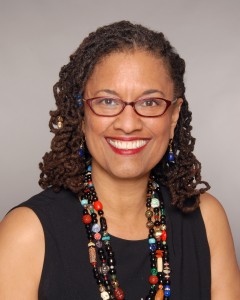
In October, Dr. Deborah Barnes was named associate dean. Her duties include: curriculum review and development, student learning outcomes and assessment, college publications and website management, assisting with review of promotion and tenure materials, and developing reports for key initiatives within the College.
Background
Dr. Barnes previously served as associate professor of English (1992-2003, tenured in 1999) and coordinator of African American studies (2001-2002) at Gettysburg College. From 2003-2006 she was a tenured associate professor of Africana Studies and concurrently director of the Lewis Walker Institute (Walker Institute) for the Study of Race and Ethnic Relations at Western Michigan University.
Most recently, Barnes served as interim associate dean of university studies and associate professor at North Carolina A&T State University (2006-2009).
Barnes is a charter founding member of the Toni Morrison Society and has been actively involved in teaching and researching in the areas of African American literature, comparative women’s literature, and lynching narratives. She has a strong record of research and scholarship and is the author of a textbook, I’m Buildin’ Me a Home: An Interdisciplinary Reader and Workbook about the African American Experience (2009).
New Structures for Success
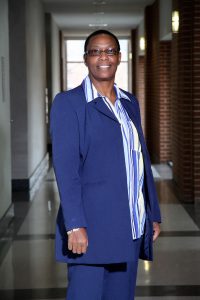
“Research shows that every day students fall through the cracks because they don’t receive the attention they need to succeed,” Potter said. “Faculty advisors frequently are overwhelmed with hundreds of students to monitor, endless amounts of paperwork, and too few hours in the day. To address such issues, Potter created the Office of STARS within the college.”
Office of Success, Transition, Advising & Retention Services (STARS)
The Office of STARS, as a structure, works with academic departments and Undergraduate Studies.
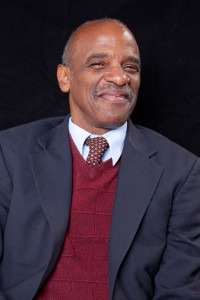
STARS staff:
Len Jefferson and Courtney Brookins, advisors
Two full-time college advisors, Len Jefferson and Courtney Brookins, are responsible for administering the CLA Uniform Advising Form processes for student advisement, degree audits, and graduation evaluation. Jefferson and Brookins are also charged with representing the College at on-campus and off-campus recruitment venues.
Trollars Moore, retention and compliance coordinator
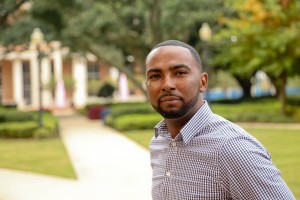
In October, Trollars Moore was hired as a retention and compliance coordinator. As part of a pilot program, Moore is specifically charged to work with the Department of Music to monitor academic progress and class attendance. To that end, GradesFirst was introduced. The web-based student performance monitoring system provides automated student services and communication among faculty, students and advisors. The project involves the marching band and music ensembles that spend a lot of time preparing and traveling for performances. Moore is the lead person to manage the reporting and interventions for more than 250 students.
ONE JSU! Relationships matter!
“Through all of the efforts to focus keenly on student advising, the major lesson to note,” said Potter, “is that relationships matter. Academic performance escalates when students have access to the services they need. When students succeed, retention increases. Research shows that when students know someone cares, they work harder. The College’s increased focus on purposeful and intentional advising is a part of the collective efforts of holding students accountable for their own learning and development.”
The College of Liberal Arts, through several new curricular initiatives that focus primarily on student learning outcomes (e.g. Writing in the Liberal Arts Disciplines and Integrative Learning/Senior Capstones) and enhanced degree programs and/or course offerings through diverse delivery platforms, will continue to elevate excellence as it moves forward to promote “ONE JSU!”



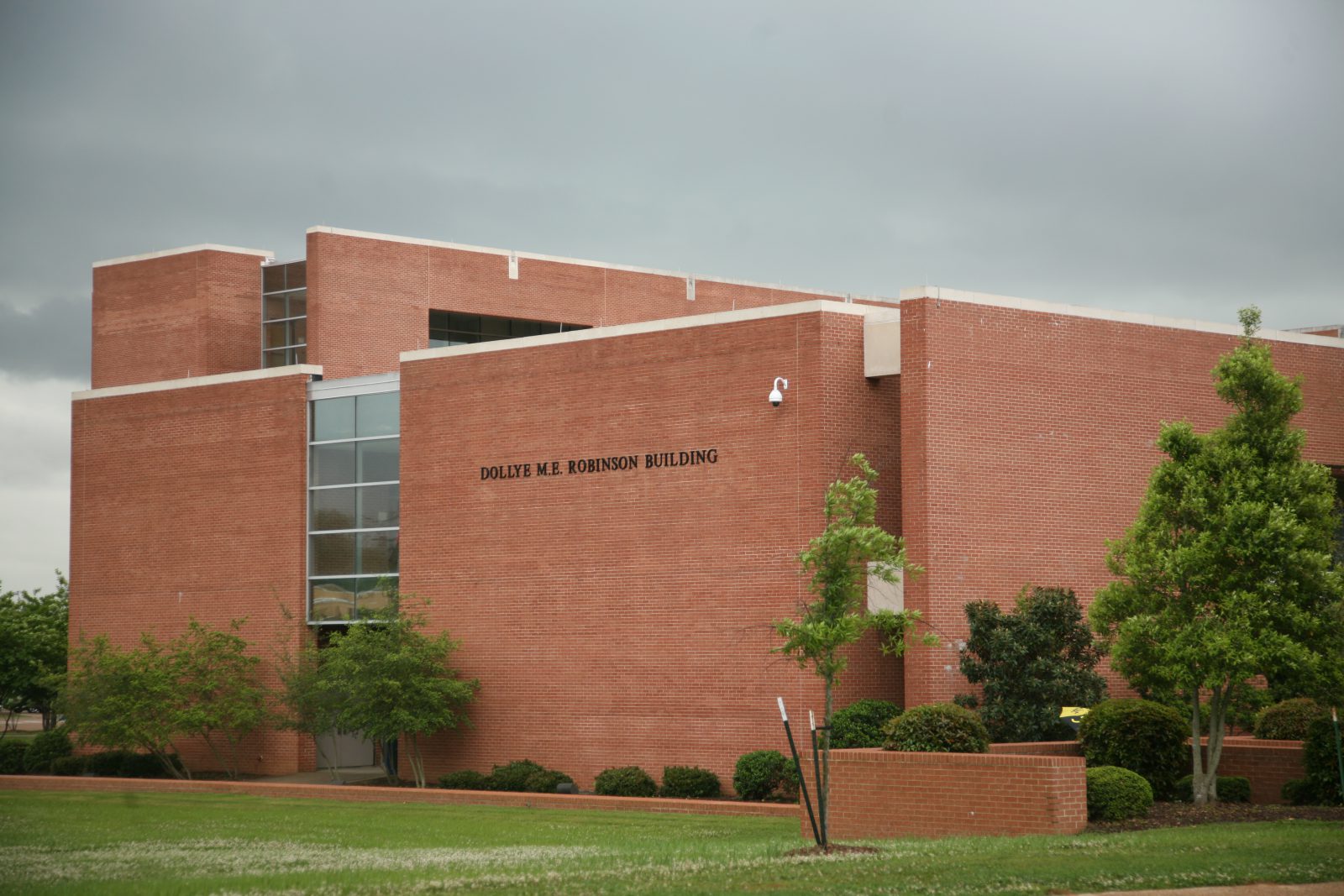




Leave a Reply